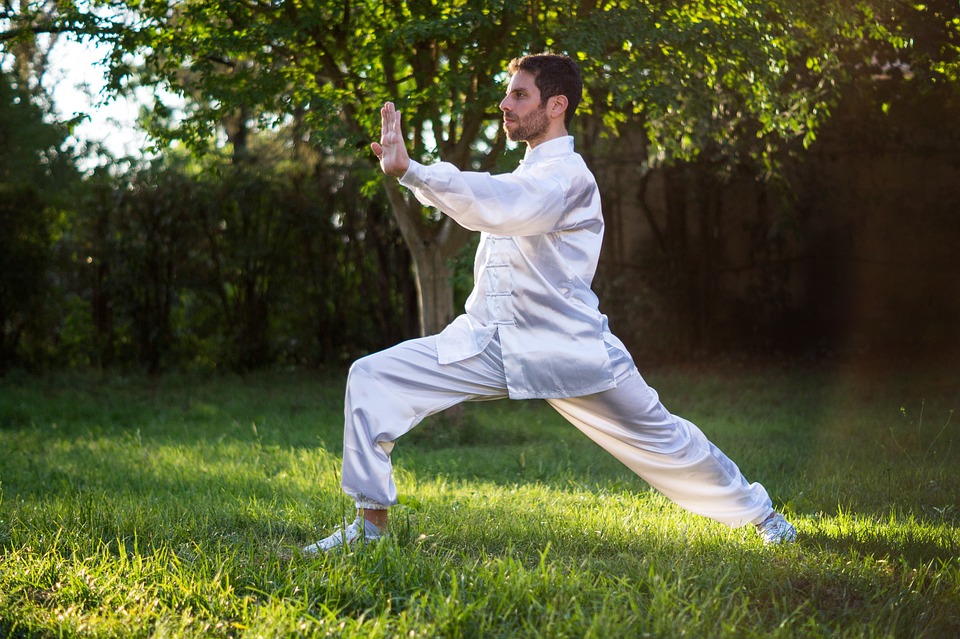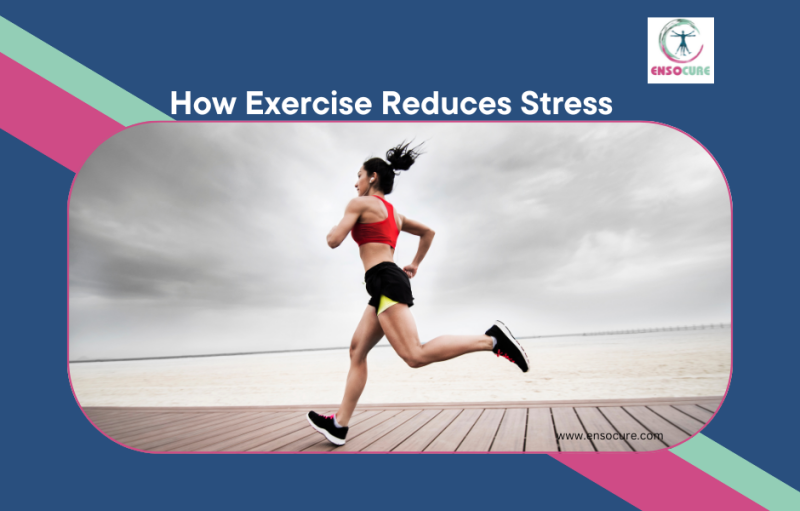Rest and relaxation is an expression enough to counter anyone suggesting sweating it out to relax. To say exercise reduces stress sounds so contradictory, but then again, your body is a mystery scientists are yet to fully understand. One thing has been proved and that is how physical activity or exercises reduces stress. In fact, it isn’t a conclusion of modern-day science, ask the great thinkers like Plato who said “Exercise would cure a guilty conscience.” Then again it was Alexander Pope who said “Strength of mind is exercise, not rest.” Now these guys knew something perhaps which we needed studies to figure out.
Exercise Reduces Stress

Countless studies have proven how exercise reduces stress, promotes emotional resilience, and improves overall well-being. Just think about it, don’t you feel better walking off all the tension from work? When we exercise, our body releases endorphins, which are natural chemicals that help to reduce pain and promote feelings of happiness and well-being. Exercising reduces stress hormones like cortisol and together with the release of endorphins keeps you calmer and more in control of your emotions and life.
The root cause of stress is emotional
Since stress is primarily emotional, it can be controlled by understanding it through mindfulness and identifying the triggers responsible. Behavioral modification is one such way to manage stress which means you need to change the way you look at life’s challenges and not always be intimidated by them. Stress also has its physical impacts on the body. It can cause several problems like fatigue, chronic muscle pain, insomnia, gastric issues, and more. Thus, exercise, especially aerobic exercise will increase physical fitness which in turn will increase mental fitness. Your relaxed body will then signal your mind to be calm which reduces the tension. Here are some ways in which exercise reduces stress:
Reduces Cortisol Levels
Cortisol is a hormone that our body produces in response to stress. When cortisol levels are elevated for long periods of time, it can lead to a wide range of negative effects on our physical and mental health, such as weight gain, weakened immune system, and anxiety. Exercise has been shown to reduce cortisol levels, helping to lower stress levels and improve overall health.
Increases Endorphins
Endorphins are natural chemicals that our body produces in response to exercise. They are sometimes referred to as the “feel-good” chemicals, because they promote feelings of happiness and well-being. When we exercise, our body releases endorphins, which can help to reduce stress and promote relaxation.
Improves Sleep Quality
Stress can often lead to difficulty sleeping, which can in turn exacerbate stress levels. Exercise has been shown to improve sleep quality, helping to reduce stress levels and promote overall well-being.
Boosts Self-Confidence
Regular exercise can help to boost self-confidence, which can be helpful in managing stress. When we feel confident in our physical abilities, we are better equipped to handle stressful situations and maintain a positive outlook.
Provides A Healthy Distraction
Exercise can provide a healthy distraction from stress and worry. By focusing on physical activity, we can temporarily take our minds off stressful situations and give ourselves a mental break.
Best Exercises for Stress
Aerobic Exercise: Activities such as walking, jogging, swimming, cycling, or dancing can help release endorphins, which are natural mood lifters. Aerobic exercise also improves cardiovascular health and reduces levels of stress hormones like cortisol.
Pilates: Pilates focuses on core strength, flexibility, and body awareness through controlled movements and breathing techniques. It can help improve posture, reduce muscle tension, and enhance overall relaxation.
Hiking or Nature Walks: Spending time in nature can have a calming effect on the mind and body. Walking outdoors, surrounded by natural scenery, can help reduce stress, improve mood, and enhance overall well-being.
Best Relaxation Exercises for Stress

- Deep Breathing: Deep breathing is a simple and effective relaxation technique that can be done anywhere and at any time. By focusing on slow, deep breaths, we can slow down our heart rate and reduce tension in the body. To practice deep breathing, sit or lie down in a comfortable position, close your eyes, and take slow, deep breaths in through your nose and out through your mouth.
- Progressive Muscle Relaxation: Progressive muscle relaxation involves tensing and then relaxing different muscle groups in the body, one at a time. This technique can help to release tension in the body and promote relaxation. To practice progressive muscle relaxation, start by tensing the muscles in your feet, then your legs, your abdomen, your arms, and so on, working your way up the body.
- Mindfulness Meditation: Mindfulness meditation involves focusing on the present moment and observing your thoughts and feelings without judgment. This technique has been shown to reduce stress, anxiety, and depression. To practice mindfulness meditation, sit or lie down in a quiet place, close your eyes, and focus on your breath. When your mind wanders, simply bring your attention back to your breath.
- Yoga: Yoga is a physical practice that combines movement with breath and mindfulness. It has been shown to reduce stress, anxiety, and depression, as well as improve overall well-being. There are many different styles of yoga to choose from, so it’s important to find one that suits your individual needs and preferences.
- Tai Chi: Tai Chi is a form of gentle exercise that involves slow, flowing movements and deep breathing. Studies have shown how Tai Chi can reduce stress, anxiety, and depression, as well as improve balance and flexibility. Tai Chi is suitable for people of all ages and fitness levels.
There are no two ways about it. Exercise reduces stress and is a great way to release penty up tension. By reducing cortisol levels, increasing endorphins, improving sleep quality, boosting self-confidence, and providing a healthy distraction, exercise can help us to better manage stress and live healthier, happier lives.

